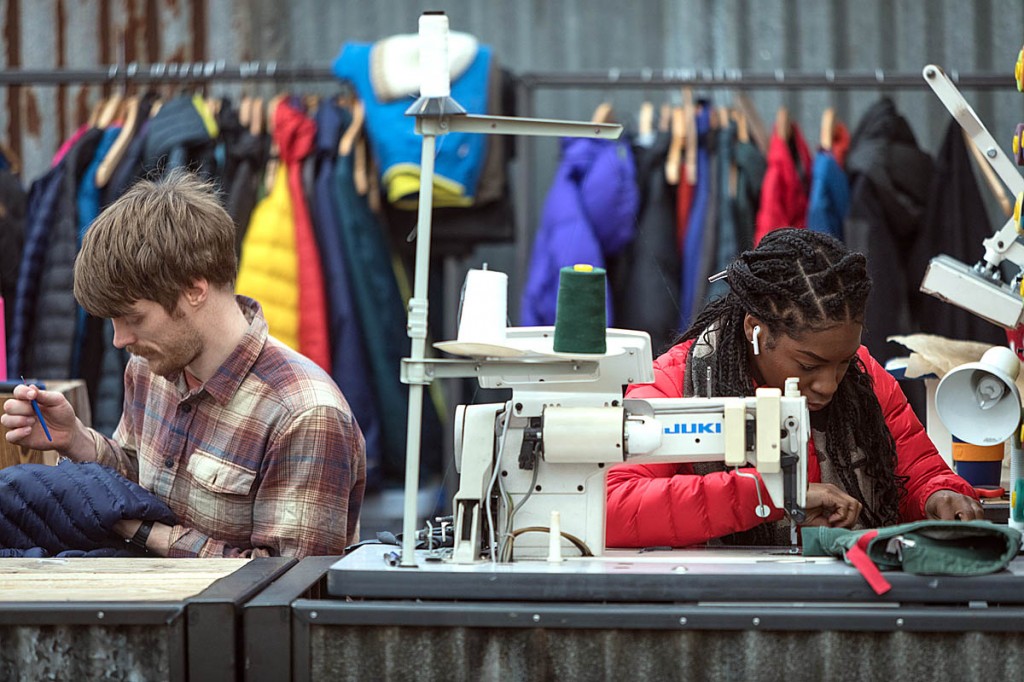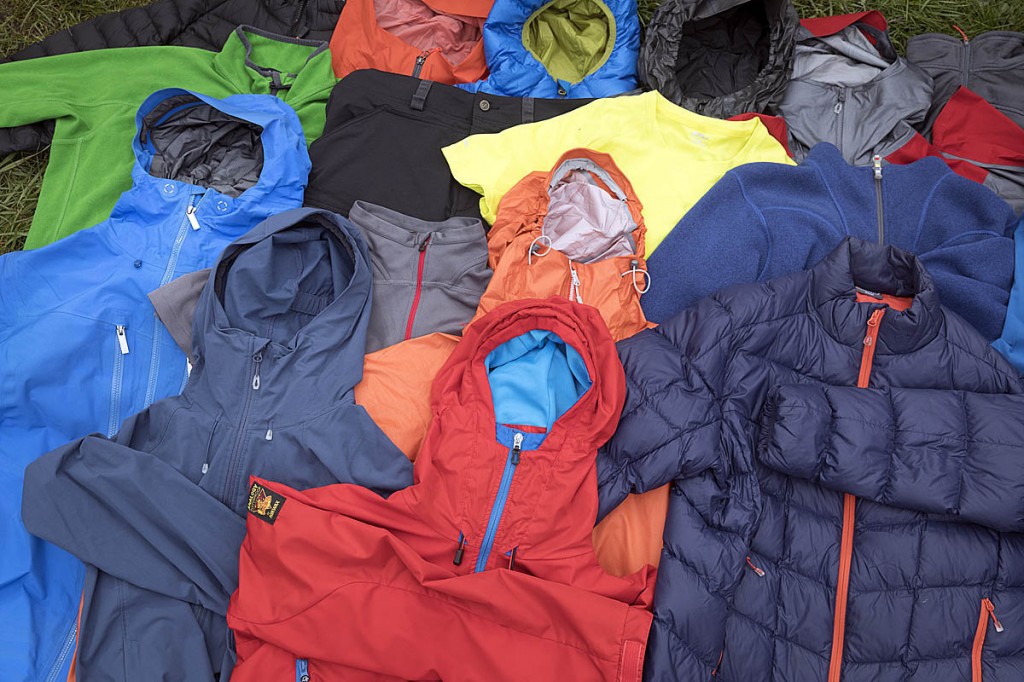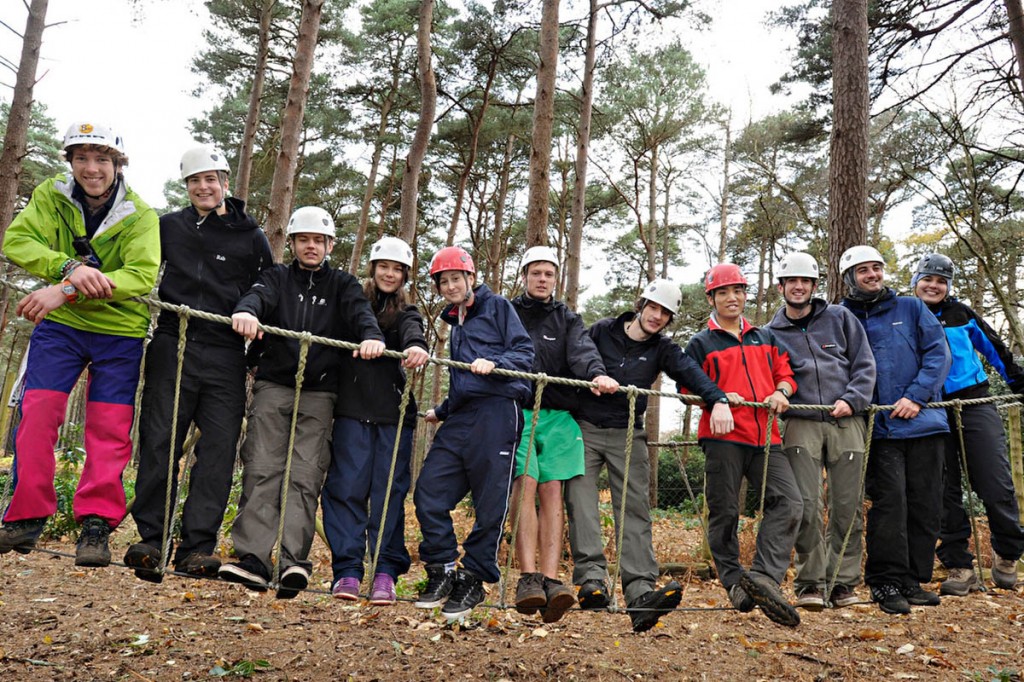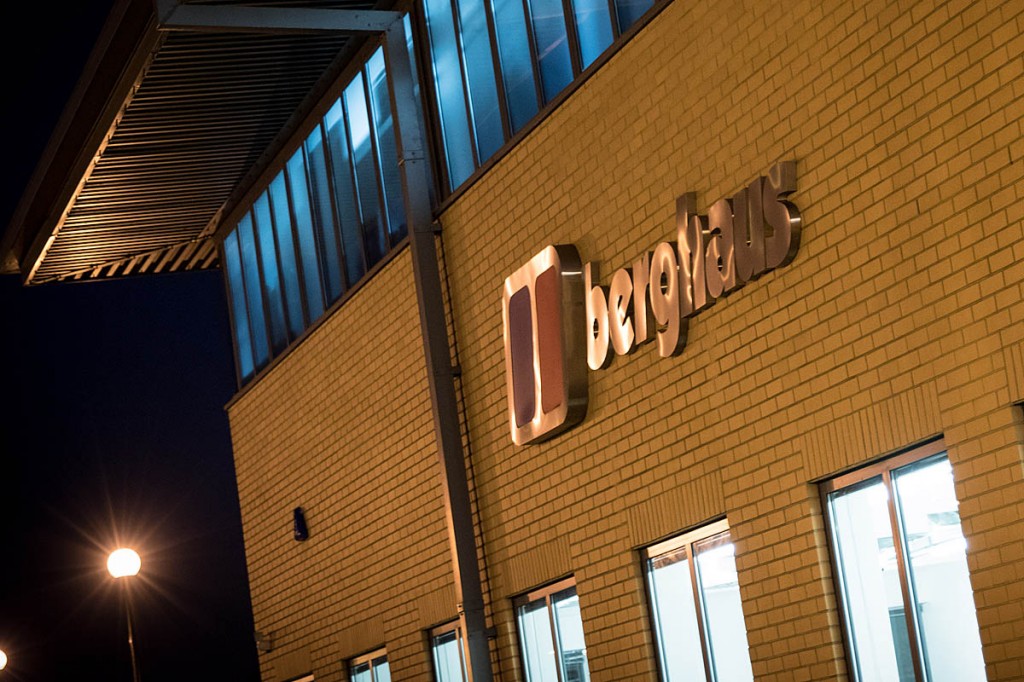According to the foundation set up by sailor and adventurer Ellen MacArthur, the equivalent of one bin lorry’s load of textiles is sent to landfill or burned every second.
Clothing that has hardly been worn, worth an estimated $500bn is lost each year with very little recycled.
While the outdoor industry isn’t at the centre of the fast fashion movement that is seen as problematic for sustainability, it is clear that some outdoor enthusiasts’ clothing and equipment will inevitably end up as part of the Ellen MacArthur Foundation statistics.
It’s an area that has caught the attention of Richard Leedham, former president of major brand Berghaus, who stepped down from the role two years ago. He has set up a community interest company, Outdoor Gear for Good, to address the matter. Mr Leedham unveiled his project’s plans to industry representatives at the annual conference of the Outdoor Industries Association, just before the coronavirus lockdown began.
He said: “In the time that I’ve been in the industry, we’ve grown from something that’s almost been like a cottage industry – pretty small, making very specialist products, and stuff that you really felt would be handed down from generation to generation – into now, we’re not fast fashion but, we’re making products that help people get outside with nature and that’s really good, but we have to be mindful of some of the flipsides.
“What happens at the end of life of our products? This is something that has interested me in my career and concerned me increasingly as more of these statistics come out.
“We need to be designing in a way that’s suitable for end-of-life recycling and keeping products in use for as long as possible.
“In the meantime, there’s a lot we can do.”
He pointed to work by organisations such as Gift Your Gear, set up by Rohan founder Sarah Howcroft, and companies such as The North Face, which takes in products and redistributes them.
But, he said, they’re brand-specific or not operating on the sort of scale needed. “So it felt to me like an area where we needed an industry solution.

Former Berghaus president Richard Leedham, co-founder of Outdoor Gear for Good. Photo: Bob Smith/grough
“That’s how this Outdoor Gear for Good concept was born. We set it up at the end of last year as a community interest company and now we’re just starting the first trials.
“We’re trying to stop outdoor clothing going to landfill and reduce waste in the process and clear some of that excess stock. Also, wouldn’t it be great if, in the process, we could help others benefit, whether that’s in terms of providing the kit, the funding? And if we could scale this, what about opportunities for employment as well?”
Mr Leedham said the idea is to take any excess stock that wasn’t needed, at no charge.
“That’s got some quite big advantages for a retailer or brand. Just keeping this stuff warm and dry costs a lot of money. If it’s sitting there doing nothing, it’s not very productive.”
He said companies could potentially write off the stock, with the tax benefit of gifting it to a CIC.
His aim is to have contacts with approved outdoor-related charities to then either distribute that gear direct to charities.
“We don’t want to get involved with projects ourselves because that’s an enormous amount of work monitoring, and the great news is that there are organisations that already exist that cover all of this.
“The areas that most brands I spoke to and most organisations I spoke to are environmental projects related to the outdoors: path maintenance and this sort of thing; and increasing outdoor participation.
“Ultimately, that could grow the market for us as well.”
His address to the industry was made before the full lockdown of the UK’s national parks and mountain areas, but there will undoubtedly be a knock-on effect on outdoor brands from the reduction in outdoor activities during the coronavirus pandemic.
Mr Leedham said the organisation is already working the European Outdoor Group, a cross-border trade body, and the European Outdoor Conservation Association and the It’s Great Out There Coalition.
He said: “If some of the product isn’t suitable for reuse, we recycle it in the best way possible. Polyester can be turned into pellets. Large items such as tents can have 30kg of fabric and if the tent pole is broken – I’ve seen these things piled up in warehouses – potentially that could be feedstock for projects such as Demeto [a polyester and PET recycling project].
“And if the brand allows it, we can sell it as well through different retail routes.
“We’ve already got that set up and it’s working very well. If the brand will allow us to do that, that’s often what the charities want. It’s often hard to actually match the gear that’s donated to the needs but everybody needs cash.
“As well as being able to clear space and save money, you also get some great news stories back.”
Earlier, I’d spoken to Richard Leedham about journalist organisations such as grough, which accumulate a large amount of outdoor gear sent for testing. Some of it is distributed to staff for longer term testing and use, but the majority just sits there unused. I said the project would be of interest to grough as a way of putting that stock of gear back into use or recycling.
Outdoor Gear for Good was set up in 2019 but has already received industry support.
Mr Leedham said: “We’ve got a team of people with great expertise. I’ve started this with James [Harris] who was chief operations officer at Berghaus. We can’t devote a huge amount of time because we’ve all got other things we’re doing but we’ve got some great enthusiasm and sign-up from some brands.
“GO Outdoors said: ‘You can have a warehouse’; we’ve got that completely free of charge, saving us a couple of thousand pounds a month, so we’re using that for storage. Rab and Lowe Alpine kindly gave us products to get us started. Osprey have a recycling scheme where they are repairing packs and selling them on already, but they’re giving us all their surplus, which has been phenomenal and Berghaus have just signed up as well, giving us a couple of pallets of stock.
“None of us are taking any salaries or fees so it’s all profit. We’ve got thousands of pounds in the bank ready to go to great projects. It’s kind of a trial level.”
He appealed to those at the conference to support the new scheme. “What we’d like to do now is to start to scale it. We’d really be keen to get more people signed up. At the moment it’s very nice, it’s generating some cash, but I think it could be quite big. We need continuity of supply, people signing up and saying yes, we want to do this. We want to employ people but I don’t want to do that unless I’ve got those commitments.”
In the future, it may even be possible to expand overseas, he said. “Ideally, we can operate in other markets. We don’t want to be shipping stuff from Germany to here. It’s not very environmentally efficient.”
Brands who sign up and donate stock will be able to say what they want it used for. At the moment, most of it is going to go to EOCA because that organisation has all the ready-made projects.
He was asked if a repair service was a possibility. He said some brands, such as Alpkit and Patagonia, through its Worn Wear scheme, already offer this, but it was a little early to judge whether that would be suitable for Outdoor Gear for Good.

Patagonia Worn Wear workers repair clothing at last year's Kendal Mountain Festival. Photo: Bob Smith/grough
“This is really small scale and so far everything that has been donated has been brand new so we haven’t needed to set up repair facilities yet.
“I want to try to understand the scale. I’d like to look at that but we’re at the very early stages and we haven’t had to address those problems yet. I’d like to employ a full team that could deal with everything.”
In the meantime, Richard Leedham hopes the new community interest company can solve the outdoor industry’s problem of what to do with its surplus products, and in the process, help worthy causes with a connection to the great outdoors. And with sales likely to be markedly down because of the Covid-19 crisis, the timing is apposite.



Lee Piggott
08 April 2020Hi I'm a company director of a veterans support group.
Valkrie wilderness workshop helping ex military with mental health substance and alcohol problems we take them out bushcraft and support outdoor activities .Group is a cic and I'm one of three directors any help would be much appreciated Lee.piggottvss@gmail.com is email address hope to hear from you in any means possible.